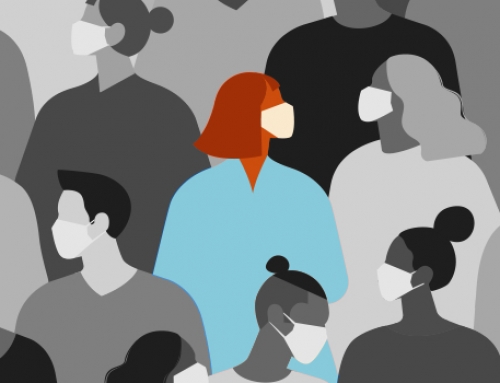We all have a voice in our head that helps us navigate and understand the world. Both consciously and unconsciously, we listen and converse with it throughout our day. It helps us plan and think through an important decision, it reminds us to pick up milk on the way home from work, and it keeps us company when our phone is dead. Most importantly, however, is that this voice helps regulate our self-esteem and reminds us of who we are and what we are worth. This can be a wonderful thing; in the face of disappointment or failure, this voice can tell us that we still matter, that we are still loved, and that things will work out. Unfortunately, this is not always the case when it comes to sexual orientation and gender as individuals who identify as lesbian, gay, bisexual, queer, or transgender often struggle to find a loving, supportive voice inside of themselves. We refer to this as internalized heterosexism or internalized transphobia.
What is Internalized Heterosexism/Transphobia?
Internalized Heterosexism/Transphobia (IH/T) is a technical term used in the social sciences. It refers to internalized negative messages, attitudes, and beliefs about sexual orientation and gender that have been communicated explicitly and implicitly by society and culture. Internalized Heterosexism/Transphobia often attacks the core identity of individuals who identify as LGBTQ+ and can manifest in critical self-talk messages. These messages can include immense disappointment, shame, and/or embarrassment about one’s sexual orientation and/or gender identity, a wish to be heterosexual or non-trans, and a feeling that one’s life is less satisfying because of one’s LGBTQ+ identity.
How Does Internalized Heterosexism/Transphobia Form?
No person is born with feelings of self-loathing or self-disappointment. We are taught to think about ourselves and value ourselves based on cultural beliefs and societal/familial messages. Although attitudes and beliefs about sexual orientation and gender have undergone a positive transformation, how many of you grew up being told that being LGBTQ+ was wrong, sinful, immoral, dirty, and/or less-than? How many of you grew up only seeing and hearing negativity about LGBTQ+ individuals? Further, how painful it is to come into your own identity with an internalized voice and blueprint for understanding your sexual orientation and/or gender that is negative, hateful, and punitive. Tragically, this is often the case as few people were raised in a family or community where positivity and love about sexual orientation and gender were fostered.
What are the Consequences of Internalized Heterosexism/Transphobia?
Internalized Heterosexism/Transphobia in an unavoidable consequence of growing in a non-affirming society. Quite consistently, researchers have found a negative effect of IH/T on the overall well-being of LGBTQ+ individuals. Specifically, increased reports of mental health symptoms such as depression, anxiety, and stress are often identified; increased reports of drug, alcohol, and tobacco use have been found as well as increased reports of physical health problems. Socially, individuals struggling with IH/T may also report difficulty feeling comfortable within the LGBTQ+ community and not have a strong social support system of other LGBTQ+ people.
How to Work Through Internalized Heterosexism/Transphobia
Although IH/T may feel like a pervasive and stable characteristic that one must learn how to shut out or ignore, transforming the voice inside of your head to be more loving and self-compassionate about your sexual and/or gender identity is achievable. This process of transformation occurs through a therapeutic process of support, compassion, and emotional connection. Engaging in a therapeutic relationship with a mental health provider, such as myself, who is deeply interested in hearing and understanding all of the negative (and positive) ways you think and feel about your sexual and/or gender identity, can make a marked difference in improving your relationship with yourself. Through the experience of deeply connecting with who you are, shame transforms into a stable and lasting sense of pride and self-love.
If you are interested in developing a more loving and self-compassionate relationship with yourself, I encourage you to read my website or contact me by phone or email. During our conversation, I will be happy to talk with you further about the services you are seeking or put you in contact with another mental health provider.





